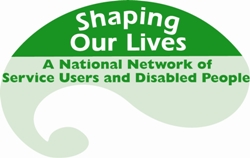I know that social workers are very busy and often feel they don’t have the time to keep up with - let alone contribute to – research. However, this is one area where we really do have to step up and make sure practice is informed by evidence of what we know works, as well as learning from the experiences of others.
Social work in Australia and America has taken this approach for many years and very much goes with the territory of being a professional. Here in England, good progress has been made in integrating evidence based practice into our work. Increasing numbers of social workers are using systemic and solution focused approaches, attachment based strategies, as well as motivational interviewing techniques to work towards improving lives and outcomes for children, young people, adults and families.

But there is much more to do. I met recently with members of Shaping Our Lives, the social network for service users and those living with disability, to talk about how we can develop an approach to evidence based social work practice through cooperation with people who use our services.
So it doesn’t always have to be about research… the experience of working with people, receiving and acting on their feedback along with observing and evaluating the changes our practice can deliver should be part of the social work canon.
Gathering evidence together about social work approaches that have made a difference for people must inform how we improve our practice - both as individual practitioners and as a profession. Knowing where to go for the most up to date research is also a challenge, but resources are available:

The whimsically named website Social Care Elf will help you keep up to date with the latest social care research. Launched in November 2014, it has quickly become one of the leading sources of bite-sized summaries of relevant, reliable social care research. Twice weekly, the site updates with summaries of carefully selected latest evidence, written in accessible blogs and shared across social media.
The Social Care Elf has now become part of the new National Elf Service website, which also features other helpful elves dedicated to mental health and learning disabilities, with many more related topic areas in the pipeline. The website can help you by offering a number of additional personalised services, which can be purchased by individuals or institutions through subscription:
- Tailored email alerts to keep users up to date with the latest reliable research
- Automatic tracking of your Continuous Professional Development and the ability to print certificates summarising your learning
- Online journal clubs and expert discussions where members can interact to refine their critical appraisal skills
- Reflective practice notes where subscribers can keep track of their learning
- A networking function to help users connect with experts and colleagues in their field of interest
You can browse the blogs and sign up for a free trial of the new features by visiting the National Elf Service.
Whether online or through engagement with our peers, it is vital social care and social work professionals deepen their knowledge, skills and practice so that service users and carers get the best support possible. Engaging with research evidence as part of everyday decision making and continuing professional development is the best way to do this. Research and real life combined!
Leave a comment